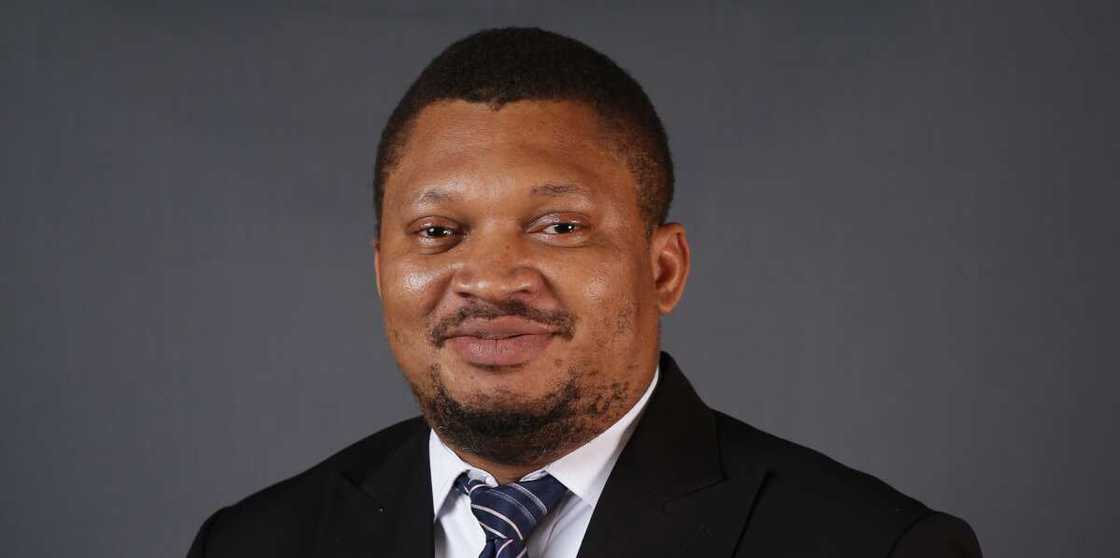How We Survived Nigeria’s Challenging Macroeconomic Terrain - Prince Nwachukwu, COO, Raven
In the fiercely competitive startup arena, resilience is not just a virtue—it's a necessity. Inflation and escalated operational costs have sent many startups packing, succumbing to the relentless pressures of the macroeconomic landscape. Yet, amidst this tumult, Raven has not only endured but thrived against all odds since its inception in 2021.
PAY ATTENTION: The 2024 Business Leaders Awards Present Entrepreneurs that Change Nigeria for the Better. Check out their Stories!
In an exclusive interview with Legit.ng, Prince Nwachukwu, the Chief Operating Officer of Raven, shared the strategies that have helped Raven stay strong in times like this and outlined Raven's expansion plans beyond Nigeria's borders.
Legit.ng journalist Zainab Iwayemi has over three years of experience covering the Economy, Technology, and Capital Market.

Source: UGC
In recent years, the proliferation of business closures has been proof of the challenges presented by Nigeria's macroeconomic landscape.
From the removal of fuel subsidies to the volatility of the value of the naira, the complexities of running a successful business in Nigeria, coupled with the high operational cost of staying afloat, have become a cause for concern.
PAY ATTENTION: Share your outstanding story with our editors! Please reach us through info@corp.legit.ng!
Yet, Raven continually weathers the storm, not merely surviving but thriving in this challenging environment.
While some organisations have backed down due to their inability to cope with the unfavourable situation, some fintechs like Raven have proven they are here to stay. Reflecting on Raven's resilience, Nwachukwu attributed their success to strategic talent and product development investments.
He underscored the pivotal role of a skilled workforce and innovative offerings, such as its new product, BankBox, which has been incubating and testing for six months.
He said:
“Raven has found a way to invest in culture and the kind of people it brings into its system because the people and the product make that major difference. If you have good people, that's a huge advantage, and if you have a good product, it sells itself.
That's one of the reasons we are still here. Also, as part of innovative development, Raven is introducing BankBox; it is simple, affordable, and everything that a regular PoS has, but it is better and exceptional; there is nothing quite like it in the market. It is fully integrated into any kind of banking system. It has a huge backend infrastructure.”
Looking to the future, Nwachukwu hinted at Raven's aspirations to expand beyond Nigeria to other parts of Africa through regulated partnerships, citing the launch of a global account system as a significant milestone towards realising this vision.
Nigeria's Macroeconomic Landscape
Delving deeper into Nigeria's economic challenges, Nwachukwu highlighted fiscal deficits and mounting debt as key obstacles to sustainable growth.
He emphasised the urgent need for economic diversification and revenue mobilisation beyond oil dependence, advocating for a conducive business environment to stimulate investment and productivity.
He said:

Read also
Good news for Nigerian content creators as Instagram announces monetization feature, Tinubu speaks
“What would solve that is to find a way to reduce debt and increase our revenue sources. It can't just be oil. Nigeria is blessed with many resources, which we can use to increase our revenue.”
“Also, the exchange rate is volatile; volatility is not a problem, but when it is volatile on the negative side, that is the major issue that has affected the importation of goods. As a result of this, inflation has gone through the roof, we have a high level of unemployment, and security issues have become a major concern.”
In his solution, the best way to handle this is to provide a thriving environment for businesses, especially startups, to grow, go into production and find a way to reduce import dependency.
Addressing recent policy directives to mitigate economic challenges, Nwachukwu opined that the policies are not permanent solutions.
They are just mitigations. He stressed the importance of collaborative efforts over unilateral actions.
He cautioned against coercive measures, advocating for inclusive dialogue and cooperation to forge sustainable solutions. The results are better when the government works with the stakeholders, not against them.
“People are potentially good, but if you force them, they are by default evil.”
Investment
While he cautioned that he is not giving any professional investment advice, Nwachukwu urged Nigerians to embrace entrepreneurship as a means of diversifying income streams and safeguarding against financial volatility rather than just relying on their monthly salaries alone.
He emphasised the importance of disciplined savings practices and prudent investment decisions to maximise returns, and there are quite a number of saving options on the Raven app to achieve this.
For this to work, however, he stressed that discipline is key because "you could start diversifying and end up hurting your current business. But if you are disciplined, you can use your free time to embrace entrepreneurship."

Read also
Hope rises as oil marketers unveil plan for new petrol price when PH refinery begins operations
Fintech Regulations
Nwachukwu highlighted the need for regulators to protect Nigerians against fraud and illicit activities as a way to better regulate fintech.
Another key thing, he said, has to do with cost. He noted that there is so much cost involved in operating fintechs that it is unnecessary.
“Also, regulators need to try to find a way to make all fintechs collaborate. He highlighted the potential benefits of enhanced collaboration among fintech firms to mitigate risks, improve healthy competition, and enhance customer satisfaction.”
Challenges In Running Business
Nwachukwu acknowledged the myriad challenges inherent in navigating the intricacies of business management. His role as COO requires adapting to changing management structures to optimise resource allocation.
He underscored the importance of resilience and proactive risk management in overcoming obstacles.
In addition, managing and optimising resources comes with its own challenges because there is a need to ensure the optimisation, management and running of the system with the best team.

Read also
"Jumia Nigeria to offer expanded product range and seamless services for consumers" - Sunil Natraj, CEO
He noted the need to maintain proper relationships with workers, clients and other stakeholders.
He said,
“There are risks to managing people. When the risk comes, ensure that you plan how to handle it so it does not go out of hand. The ability to navigate these challenges is what makes it worthwhile for me.”
Nigerian fintech shuts down after raising $2m
Legit.ng had earlier reported that Zazuu, a fintech company focusing on Africa, officially ceased its operations due to the inability to secure additional funding.
The closure announcement was made through a LinkedIn post where the startup acknowledged the challenge of obtaining sufficient growth funding as the primary reason for the shutdown.
Established in 2018 by four Nigerian entrepreneurs—Kay Akinwunmi (CEO), Korede Fanilola (COO), Tosin Ekolie (CTO), and Tola Alade (CDO)—Zazuu aimed to revolutionise the remittance payment landscape in Sub-Saharan Africa.
PAY ATTENTION: Stay Informed and follow us on Google News!
Source: Legit.ng





